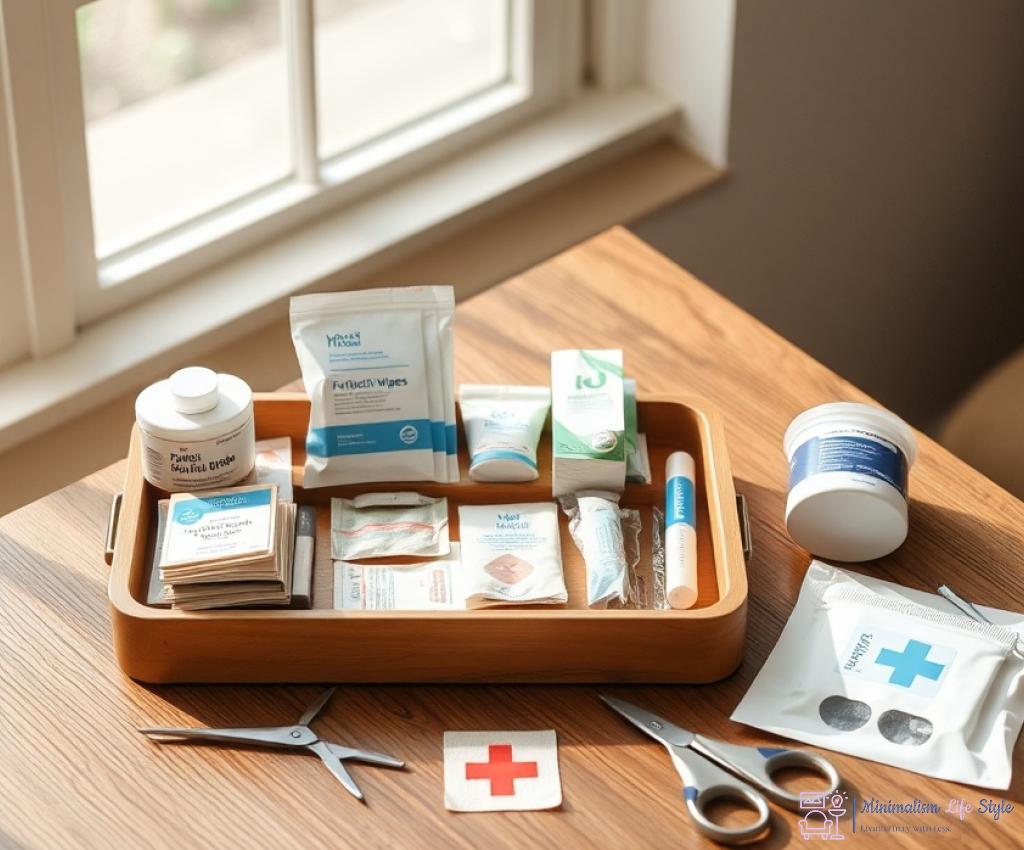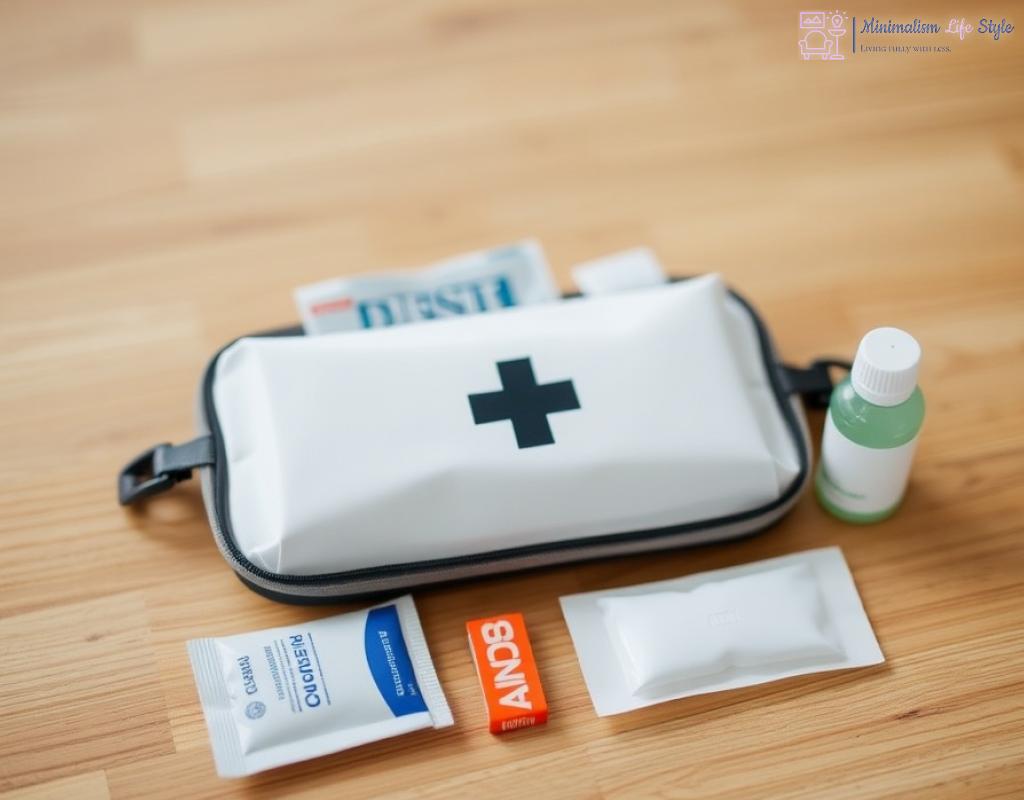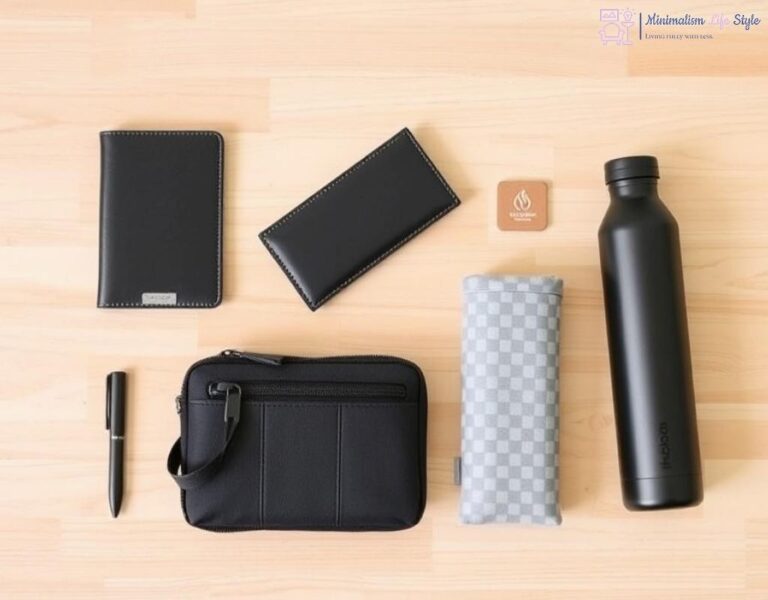The Must-Have First Aid Essentials

Traveling Light, Yet Fully Prepared
When embarking on a journey, the thrill of exploration often comes hand in hand with the need for safety. Minimalist travelers understand the importance of packing light, yet they also recognize that being prepared for unexpected health issues is vital. In this guide, we’ll delve into the must-have first aid essentials that will ensure your peace of mind while traversing the globe.
Essential Items for Every Traveler
Every traveler’s first aid kit should be a compact yet comprehensive collection of items designed to tackle common medical issues. Here’s a curated list of essentials that will keep you covered without weighing you down:
- Adhesive Bandages: Perfect for minor cuts and scrapes.
- Antiseptic Wipes: Essential for cleaning wounds to prevent infection.
- Pain Relievers: A small bottle of ibuprofen or acetaminophen can go a long way.
- Allergy Medication: Antihistamines are a must for unexpected allergic reactions.
- Gauze and Tape: For larger wounds that need more than just a band-aid.
- Thermometer: A digital thermometer for quick temperature checks.
- Elastic Bandage: Useful for sprains or strains.
- Prescription Medications: Always carry a sufficient supply of any personal medications.
Crafting Your Personalized First Aid Kit
Building your first aid kit should be an intentional process. Consider your destination, activities, and personal health needs. Here’s a simple comparison table to help you evaluate what to include based on your travel style:
| Travel Style | Recommended Items | Notes |
|---|---|---|
| Backpacking | Lightweight bandages, pain relievers, antiseptic wipes | Focus on space-saving options |
| Family Trips | Full-sized bandages, allergy medication, thermometer | Plan for potential kid-related injuries |
| Adventure Travel | Elastic bandage, gauze, sports tape | Prepare for more physical activities and potential injuries |
By tailoring your first aid kit to your travel style, you not only ensure that you have all the necessary items, but you also maintain that minimalist approach that makes traveling so enjoyable. So, as you gear up for your next adventure, remember that a well-prepared first aid kit is just as crucial as your passport!
Packing Smart: Travel-Friendly First Aid Kits
When planning your next adventure, packing the right essentials can transform a chaotic trip into a seamless experience. Among the myriad of items to consider, a well-organized first aid kit stands out as a critical component. Not only does it equip you to handle minor injuries, but it also promotes peace of mind as you explore new destinations. By packing smart, you can ensure that your first aid kit is travel-friendly and ready for any eventuality.
Curating Your Compact First Aid Kit
Creating a travel-friendly first aid kit doesn’t mean compromising on safety. Instead, it involves choosing versatile items that cater to various situations. Below is a curated list of essentials that should find their way into your minimalist first aid kit:
- Multi-purpose Adhesive Bandages: Choose assorted sizes to accommodate various cuts and scrapes.
- Travel-size Antiseptic Solution: A small bottle is enough to keep wounds clean on the go.
- Compact Pain Relief Options: Opt for a few tablets of ibuprofen or acetaminophen.
- Quick-acting Allergy Relief: A single pack of antihistamines can be a lifesaver.
- Small Roll of Gauze: For larger injuries that require more than just a bandage.
- Portable Thermometer: Essential for monitoring fever, especially for families.
- Elastic Bandage Wrap: Ideal for supporting sprains or strains effectively.
- Personal Prescription Medications: Never leave home without a sufficient supply of any required medications.
Choosing the Right Container
The container for your first aid kit is just as important as its contents. A lightweight, waterproof pouch offers durability and convenience, allowing you to easily fit it into your backpack or suitcase. Look for options with multiple compartments to keep items organized and accessible. Remember, the easier it is to find what you need, the quicker you can address any health issue that arises.
Regular Maintenance for Peace of Mind
Once your first aid kit is packed, the work isn’t done. Regular maintenance is key to ensuring that your kit remains effective and ready for use. Make it a habit to check your supplies before each trip, replacing any expired medications and restocking items that have been used. This simple practice not only keeps your kit in top shape but also reinforces your commitment to safe and responsible travel.
Common Travel Ailments: Prevention and Treatment
When wandering into the unknown, it’s crucial to be equipped not just with essential supplies but also with knowledge about the common ailments that can disrupt your adventure. Staying informed about potential health issues can allow you to tackle them effectively, ensuring that your journey remains enjoyable and worry-free. This section delves into prevalent travel ailments, offering insights on prevention techniques and treatment options that align with your minimalist travel philosophy.
Understanding Common Ailments
Traveling can expose you to various health challenges, from the mundane to the more serious. Digestive issues such as traveler’s diarrhea are often the most frequent complaints, stemming from changes in diet or contaminated food and water. To prevent these issues, prioritize drinking bottled water and eating at reputable establishments. If digestive distress does strike, over-the-counter medications can provide relief.
Another common issue involves muscle strains and sprains, particularly for those engaging in adventurous activities like hiking or sports. To avoid these injuries, it’s wise to warm up before physical exertion and incorporate stretching into your routine. In the event of an injury, applying an elastic bandage from your first aid kit can help reduce swelling and provide support.
Quick Remedies for Unforeseen Circumstances
No travel experience is complete without the odd headache or cold. Headaches can arise from dehydration, lack of sleep, or even stress. Always have a few pain relievers handy to combat this nuisance, but remember that hydration is your first line of defense. If you do catch a cold, rest and fluids are paramount; a portable thermometer can help you monitor your temperature if you start feeling unwell.
Finally, consider allergic reactions, which can be triggered by environmental factors or new foods. Keeping an antihistamine handy can be a game changer. If you know you have specific allergies, taking preventive measures—such as informing your travel companions or avoiding certain foods—will help safeguard your experience.
By understanding these common travel ailments and preparing for them, you can travel with confidence, knowing that you are equipped to handle whatever comes your way. This blend of knowledge and preparedness not only enhances your travel experience but also contributes significantly to your peace of mind.
First Aid for Outdoor Adventures: Nature’s Challenges
Embracing the Wild with Preparedness
Outdoor adventures beckon with promises of breathtaking views and exhilarating experiences. However, the unpredictability of nature can pose unique challenges that require a well-thought-out first aid strategy. Understanding how to respond to common outdoor mishaps not only ensures safety but also allows you to fully immerse yourself in the beauty of your surroundings. By equipping yourself with essential first aid knowledge and supplies tailored for outdoor activities, you can navigate nature’s challenges confidently.
Common Outdoor Injuries and Quick Responses
While exploring the great outdoors, it’s not uncommon to encounter a variety of injuries. From scrapes and cuts from branches or rocky terrains to the dreaded insect bites that can spoil your adventure, being prepared is key. Carrying versatile items such as adhesive bandages and antiseptic wipes can make all the difference in managing minor injuries promptly. In the case of an insect bite, having a soothing cream or antihistamine on hand can alleviate discomfort and prevent further reactions.
Additionally, outdoor enthusiasts are particularly susceptible to muscle strains and sprains. Engaging in rigorous activities like hiking or rock climbing can lead to unexpected injuries. To mitigate this risk, it’s critical to warm up before your adventures and remain aware of your physical limits. Should an injury occur, employing an elastic bandage from your first aid kit can provide immediate support and aid in minimizing swelling.
Staying Vigilant Against Environmental Hazards
The wilderness is filled with hidden dangers, from sudden weather changes to the risk of dehydration. Preparing for environmental hazards is not just smart; it’s essential. Always carry a portable thermometer to monitor body temperature, especially if you begin to feel fatigued or unwell. Additionally, being aware of the signs of heat exhaustion or hypothermia can prove lifesaving in extreme conditions. Staying hydrated is paramount; pack a water purification method in your kit to ensure you can safely drink from natural sources.
Finally, don’t overlook the importance of being informed about local wildlife and plants. Some areas may have poisonous plants or aggressive insects that could pose a risk to your health. Familiarize yourself with these potential threats and pack a comprehensive first aid manual for quick reference during your hike. By merging knowledge with preparedness, you can transform potential challenges into manageable experiences, allowing you to savor every moment spent in nature’s embrace.
Emergency Contacts: Preparing for the Unexpected
When embarking on your minimalist travel journey, the thrill of discovering new places often overshadows the need for preparation. However, the unexpected can strike at any moment, making it essential to be equipped not only with a well-stocked first aid kit but also with a robust plan for emergencies. Having a list of emergency contacts is a crucial component of this preparation, ensuring that you can swiftly access help when needed. This proactive approach allows you to travel with confidence, knowing that you’re ready to face any challenges that may arise.
Understanding the Importance of Emergency Contacts is fundamental when traveling. In unfamiliar environments, knowing who to call in case of an emergency can be the difference between a minor inconvenience and a major crisis. Whether it’s a medical emergency, a lost passport, or an unexpected natural disaster, having a reliable network of contacts can offer peace of mind. Start by identifying the local emergency services in your destination, including hospitals, police stations, and fire departments. Jot down their contact numbers and keep them easily accessible in your phone or travel documents.
Moreover, consider the value of having contacts back home. Informing a trusted friend or family member about your travel itinerary can provide an extra layer of security. If something goes awry, they can act as your point of contact, helping you reach out to necessary authorities or facilitate communication with local services. This simple step not only enhances your safety but also helps to alleviate potential anxiety about traveling alone.
Crafting Your Emergency Contacts List requires thoughtful consideration. Begin by gathering critical information, including local emergency numbers and contact details for your country’s embassy or consulate in the area. Ensure you have the phone numbers of travel insurance providers, as they can offer immediate assistance in medical emergencies. Additionally, keep a list of fellow travelers’ contacts if you’re on a group trip. This interconnectedness can prove invaluable in times of need.
Incorporate technology into your planning by utilizing mobile apps designed for travelers. Many of these apps allow you to save emergency contacts, access local emergency services, and even share your location with trusted individuals. Furthermore, consider having a backup of your essential documents, such as your passport and travel insurance policy, digitally stored in a secure cloud service. This way, you can retrieve them easily if they are lost or stolen.
Ultimately, the essence of minimalist travel lies in being prepared without the burden of excess. By creating a comprehensive list of emergency contacts and familiarizing yourself with your surroundings, you empower yourself to handle unforeseen circumstances with composure. This sense of readiness not only enhances your travel experience but also allows you to immerse yourself fully in the adventure, knowing that you have taken the necessary precautions to ensure your safety.




